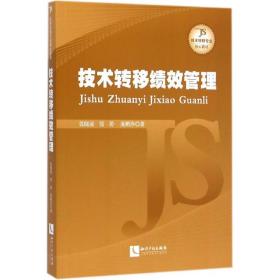
学使用c指针 英文原版书 richard reese
英文原版书 新华书店全新正版书籍
¥ 24.43 5.3折 ¥ 46 全新
仅1件
作者richard reese
出版社东南大学出版社
ISBN9787564146030
出版时间2014-01
版次1
装帧平装
开本16开
页数208页
字数100千字
定价46元
货号xhwx_1200840080
上书时间2021-11-25
- 最新上架
商品详情
- 品相描述:全新
- 正版特价新书
- 商品描述
-
目录:
preface
1. introduction
pointers and memory
why you should bee proficient with pointers
declaring pointers
how to read a declaration
address of operator
displaying pointer values
dereferencing a pointer using the indirection operator
pointers to functions
the concept of null
pointer size and types
memory models
predefined pointer-related types
pointer operators
pointer arithmetic
paring pointers
mon uses of pointers
multiple levels of indirection
constants and pointers
summary
2. dynamic memory management in c
dynamic memory allocation
memory leaks
dynamic memory allocation functions
using the malloc function
using the calloc function
using the realloc function
the alloca function and variable length arrays
deallocating memory using the free function
assigning null to a freed pointer
double free
the heap and system memory
freeing memory upon program termination
dangling pointers
dangling pointer examples
dealing with dangling pointers
debug version support for detecting memory leaks
dynamic memory allocation technologies
garbage collection in c
resource acquisition is initialization
using exception handlers
summary
3. pointers and functions
program stack and heap
program stack
organization of a stack frame
passing and returning by pointer
passing data using a pointer
passing data by value
passing a pointer to a constant
returning a pointer
pointers to local data
passing null pointers
passing a pointer to a pointer
function pointers
declaring function pointers
using a function pointer
passing function pointers
returning function pointers
using an array of function pointers
paring function pointers
casting function pointers
summary
4. pointers and arrays
quick review of arrays
one-dimensional arrays
two-dimensional arrays
multidimensional arrays
pointer notation and arrays
differences between arrays and pointers
using malloc to create a one-dimensional array
using the realloc function to resize an array
passing a one-dimensional array
using array notation
using pointer notation
using a one-dimensional array of pointers
pointers and multidimensional arrays
passing a multidimensional array
dynamically allocating a two-dimensional array
allocating potentially noncontiguous memory
allocating contiguous memory
jagged arrays and pointers
summary
5. pointers and strings
string fundamentals
string declaration
the string literal pool
string initialization
standard string operations
paring strings
copying strings
concatenating strings
passing strings
passing a simple string
passing a pointer to a constant char
passing a string to be initialized
passing arguments to an application
returning strings
returning the address of a literal
returning the address of dynamically allocated memory
function pointers and strings
summary
6. pointers and structures
introduction
how memory is allocated for a structure
structure deallocation issues
avoi malloc/free overhead
using pointers to support data structures
single-linked list
using pointers to support a queue
using pointers to support a stack
using pointers to support a tree
summary
7. security issues and the improper use of pointers
pointer declaration and initialization
improper pointer declaration
failure to initialize a pointer before it is used
dealing with uninitialized pointers
pointer usage issues
test for null
misuse of the dereference operator
dangling pointers
accessing memory outside the bounds of an array
calculating the array size incorrectly
misusing the sizeof operator
always match pointer types
bounded pointers
string security issues
pointer arithmetic and structures
function pointer issues
memory deallocation issues
double free
clearing sensitive data
using static analysis tools
summary
8. odds and ends
casting pointers
accessing a spe pure address
accessing a port
accessing memory using dma
determining the endianness of a machine
aliasing, strict aliasing, and the restrict keyword
using a union to represent a value in multiple ways
strict aliasing
using the restrict keyword
threads and pointers
sharing pointers between threads
using function pointers to support callbacks
object-oriented techniques
creating and using an opaque pointer
polymorphism in c
summary
index
内容简介:
学使用c指针(影印版)(英文本)作者通过学使用c指针(影印版)(英文本)中的内存模型为你展示了如何在数组、字符串、结构和函数中使用指针。虽然难以掌握,但是指针为c语言提供了灵活性和强大能力,不过很少有资料来讲述这种数据类型。无论你是初学者还是有经验的c或者c编程人员和开发者,这本详尽的书籍都有着你所需要的知识。
作者简介:
雷斯(richardreese),是位于德萨斯州斯蒂芬维尔镇上的塔尔顿州立大学的副教授。他在界和教育界工作了三十多年,包括在洛希德马丁公司从事了十年的软件开发支持工作。
— 没有更多了 —












以下为对购买帮助不大的评价